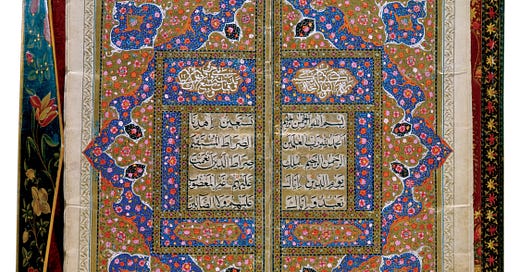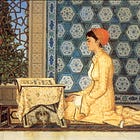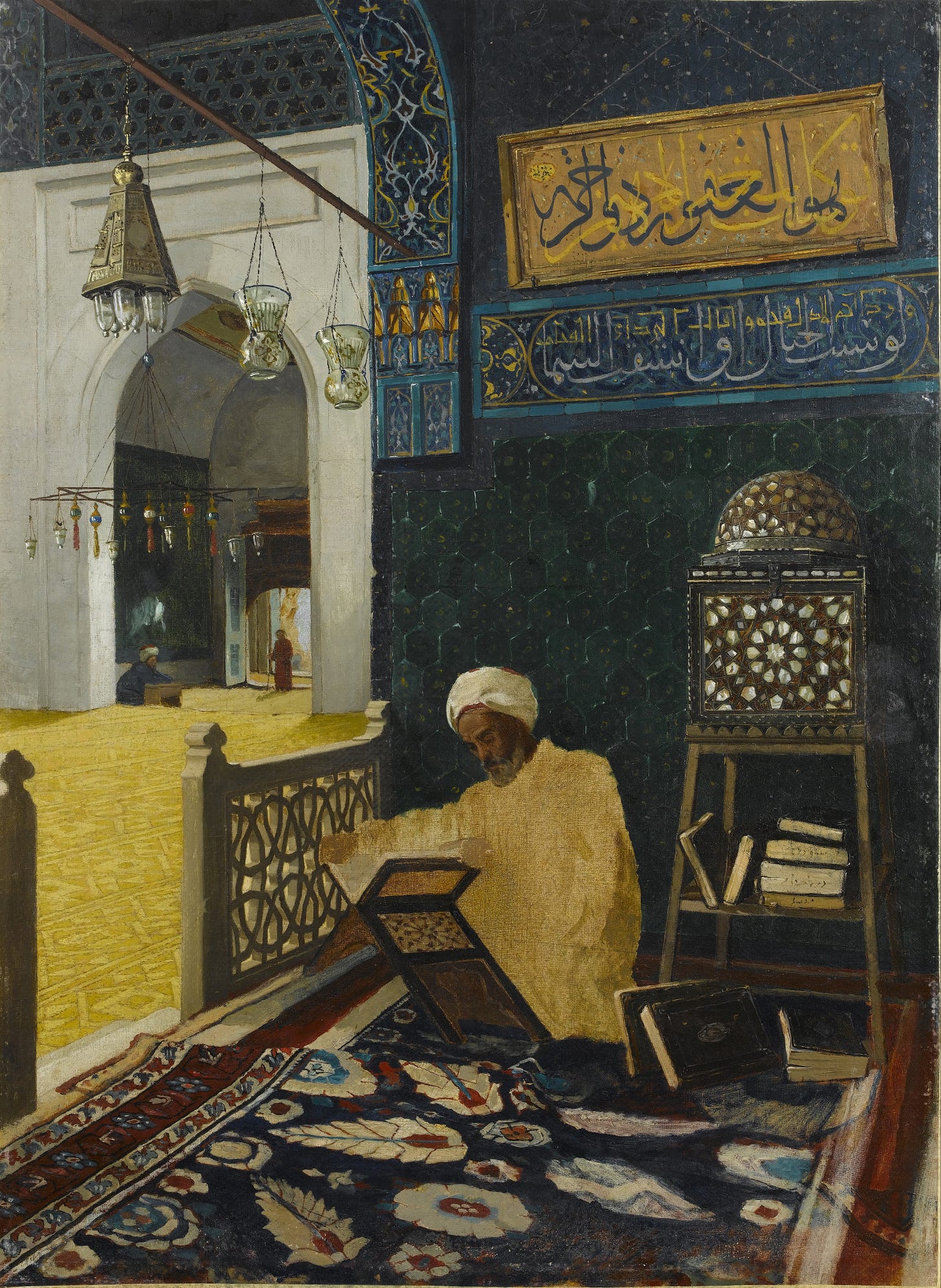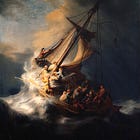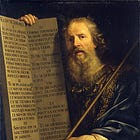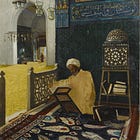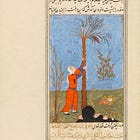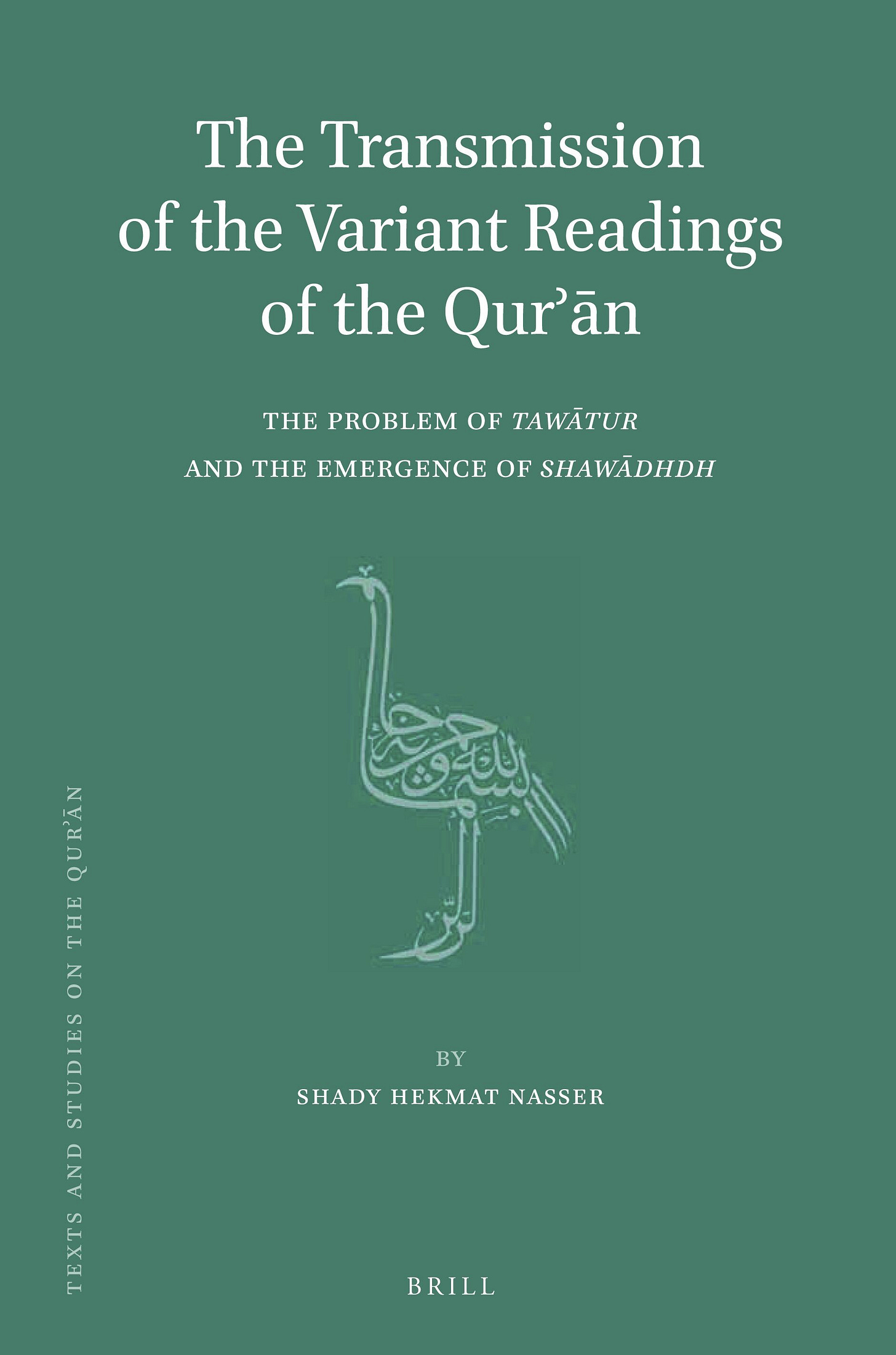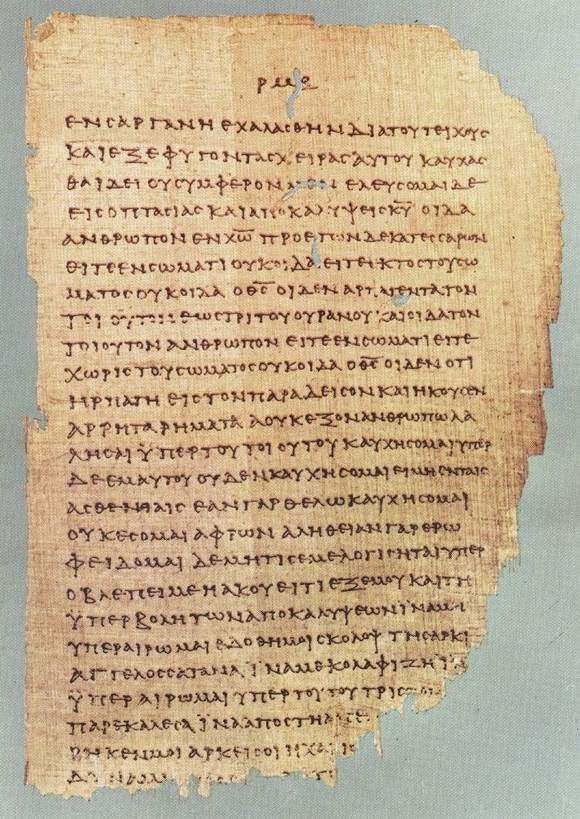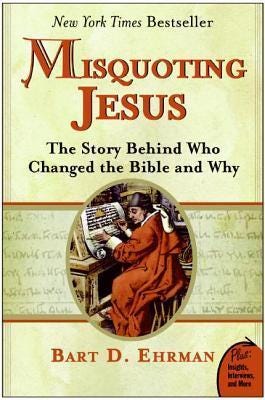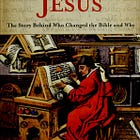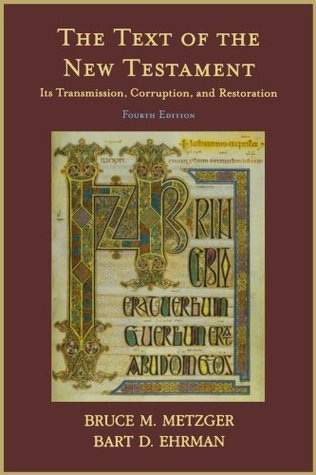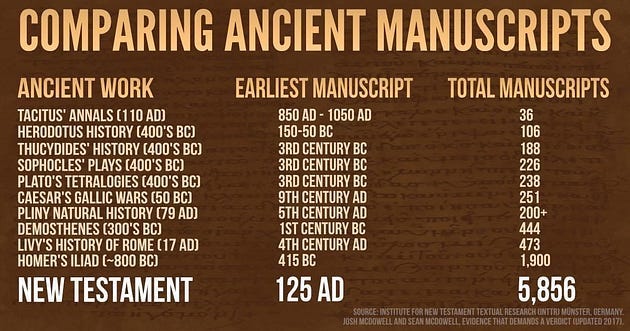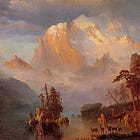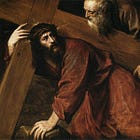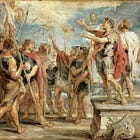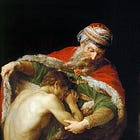The Qur'an vs The Bible: Perfect Word-for-Word Preservation vs A Hopelessly Corrupted Text?
Muslim Scholars' Surprising Claims About the Qur'an's Preservation
Again and again Muslims claim the Bible is hopelessly corrupted beyond restoration. These same people will often tell you the Qur’an is preserved word-for-word in Arabic, exactly matching what was revealed to Muhammad which exactly matched what was uncreated in heaven for eternity past. Does the evidence support this view?
Find us on Medium.com
Or X
Or Insta:
instagram.com/streettheologianapologetics/
1. The Uncreated Word v Inspired Human Writings- Islam v Christianity
2. The Uncreated Word in Christianity
3. The Incoherence of an Uncreated Word in the Trinity?
4. Did the Qur’an endorse a book that teaches God is One, yet three persons?
5. 2 Big Questions
6. Word-for-word, letter-for-letter, dot-for-dot?
7. Muslim scholar, Dr. Shabir Ally, claims there are multiple versions of the Qur’an and what most Muslims read today is the 1924 Egyptian Edition
8. Muslim apologist debunks.. Muslim apologists on variations in Qur’anic manuscripts- Dr. Ally claims without being willing to learn many have simply parroted the common way of speaking
9. Dr. Shabir Ally on the version of the Qur’an on the heavenly tablets
10. The Qur’an as an oral tradition-Dr. Shabir Ally
11. Islamic scholar Dr. Shady Nasser on the “ignorant masses”-The Qur’an was revealed in seven modes according to the Hadith but Muslim scholars unanimously agree we do not have these seven modes of recitation as seven canonical modes today!
12. What about the Bible?
13. Was centralised corruption of the Bible possible?
14. Did Muhammad think the Bible has been corrupted?
15. Leading Sceptic Bart Ehrman: The Bible's Core Message Remains Intact
16. Muslim apologists commit an equivocation fallacy- does Dr. Bruce Metzger think the Bible has been thoroughly corrupted beyond its’ original meaning?
17. Dr. Dan Wallace: The Bible’s Textual Accuracy
18. Copies of copies of copies of copies?
20. What the Bible’s message is about
1. The Uncreated Word v Inspired Human Writings- Islam v Christianity
The Islamic view of the Qur’an is in some ways closer to the Christian view of Jesus than of the Bible.
2. The Uncreated Word in Christianity
Jesus is the uncreated eternal Word of God in Christianity and this is how the Qur’an is considered in Islam.
Christians believe the Bible is inspired by God or God-breathed (2 Tim. 3:16). As such the Bible is both a human book and a divine book, for God inspires a human process. Human authors with their own individual writing styles and talents.
The Bible is in some ways more comparable to how Muslims view the authentic Hadiths.
Rahman in Islam describes the Hadith as “the authoritative second source of the content of Islam besides the Qur’an (p.43).”
Anderson in Islam in the Modern World, describes the Hadith Traditions as “equally inspired in content though not in form (p.39).”
3. The Incoherence of an Uncreated Word in the Trinity?
Muslims: God is unlike anything we know.
Also Muslims: The Trinitarian God is unlike anything we know and is therefore incoherent.
Muslims often like to attack the doctrine of the Trinity by claiming nothing like the Trinity exists in real life.
However, the Qur’an emphasises in Surah 42:11 and 112:4 that God is unlike anything nor is anything comparable to God.
The fact we don’t see one being who is three persons in our reality does not mean this could not be the case in another dimension.
However, in Islam (Sunni), the Qur’an is the uncreated word of Allah but is not identical to Allah nor created by Allah. Either then the Qur’an is eternal and impersonal (similar to what is found in many ancient pagan schools of thought) or eternal and personal alongside the person of Allah.
Moreover, Allah has attributes (e.g. the 99 attributes) that exist from eternity, however, these attributes are not created, nor are they identical to Allah, nor identical to each other. In addition, there have been fights between Muslims for centuries over whether the parts of Allah are physical parts or metaphorical parts.
4. Did the Qur’an endorse a book that teaches God is One, yet three persons?
Another problem that we will cover in more detail later, is that Muhammad and Allah endorse the Gospel (Injil) and Torah multiple times in the Qur’an. However, there is good evidence to think the Gospel and Torah teach that God is One, yet multi-personal. We have covered this elsewhere:
5. This leads to 2 big questions
Is the uncreated eternal Qur’an the same as the one we have today?
Has the Bible been corrupted?
6. Word-for-word, letter-for-letter, dot-for-dot?
A common catch cry of Muslim apologists is that the Qur’an has been preserved word-for-word, letter-for-letter, dot-for-dot.
For example, IslamicPamphlets.com claims the Qur’an has been preserved word-for-word in the About Islam pamphlet. It reads regarding the Qur’an:
“Preserved, word-for-word, since it was revealed in its original Arabic language, unlike other scriptures which have been distorted, changed or lost.”
You can find more examples of Muslims making similar claims in the video below:
7. Muslim scholar Dr. Shabir Ally claims there are multiple versions of the Qur’an and what most Muslims read today is the 1924 Egyptian Edition
What most Muslims read today is primarily the Egyptian Edition of 1924 (often a term used synonymously with Hafs Qur’an). However, there are other Arabic versions such as the Warsh Qur’an. Moreover, the 1924 Egyptian Edition exhibits variants from earlier copies of the Qur’an as we will note later.
Leading Muslim apologist, Dr. Shabir Ally explains:
“I want to discuss with you the history of the rise and development of readings and manuscripts of the Quran. Today, most Muslims read the Quran in a text that is referred to as the Egyptian Edition of 1924. That's how scholars refer to it.
Most Muslims may not have realized that this is the designation for that manuscript, for that text to Muslims, in general. This is just simply the Quran. But this is not the only text of the Quran that is read throughout the world.
In North Africa, there is a slightly different text that is based on a slightly different reading (eg. Warsh), mostly corresponding to what we read in the rest of the world, but with some slight variations that do not affect anything that Muslims believe, and do not have any major impact on any Muslim practices.
And then, too, in some parts of Africa, there is another reading of the Quran and a matching manuscript that is prevalent. And here, too, we find some slight variations.”
8. Muslim apologist debunks.. Muslim apologists on variations in Qur’anic manuscripts- Dr. Ally claims without being willing to learn many have simply parroted the common way of speaking
Dr. Shabir Ally expresses his views on a position where the Qur’an is preserved word-for-word, letter-for-letter:
“In 1972, a mosque was being repaired in Sana’a, Yemen, and it was found that in the ceiling of the mosque, there were many old documents stashed. Among the documents, some were Quranic copies, and there was one of particular interest that came to be widely referred to now as the Sana’a Palimpsest.
Why is it called a palimpsest? A palimpsest is an erased manuscript. Someone had a manuscript, wrote on it, then erased it and wrote something else over it. This particular palimpsest had a copy of the Quran written—apparently a copy of the Quran that was erased—and then a new copy of the Quran was written over it.
The new copy, referred to as the upper level or the upper layer of this text, corresponds closely to what we're reading today as an Uthmanic copy—a copy of the Uthmanic codices. The lower text shows some significant variations, though not so significant as to challenge any of the things that Muslims practice or even what we believe. So, no severe effect or major effect on Muslim practices, and no effect on Muslim belief.
Nonetheless, there are variations of words and sometimes the sequence….
On the one hand, this cuts away at the sense of complacency that many Muslims have gone around with, thinking that everything has been preserved dot for dot, letter for letter, the way it was revealed to the Prophet Muhammad (peace be upon him), with no variation or change whatsoever.
So, you know, it cuts at that general sense, which actually is not a scholarly way of thinking about the Quran.
Our scholars have always known and always described in our classical books variations in manuscripts. Like, you know, "It's read like this by Ubayy ibn Ka‘b," "It's read like this by Ibn Mas‘ud," and so on. In the codex of Ibn Mas‘ud, it was seen to be written like this, and in the codex of Ubayy, it was seen to be written like this, with this or that variation. So, these were always known in scholarly circles to have existed.
But recently, average Muslims have simply, without bothering to learn, just parroted the common way of speaking about the Quran, saying, "You know, it's 100% the way it's always been," and they cannot imagine any variation.”
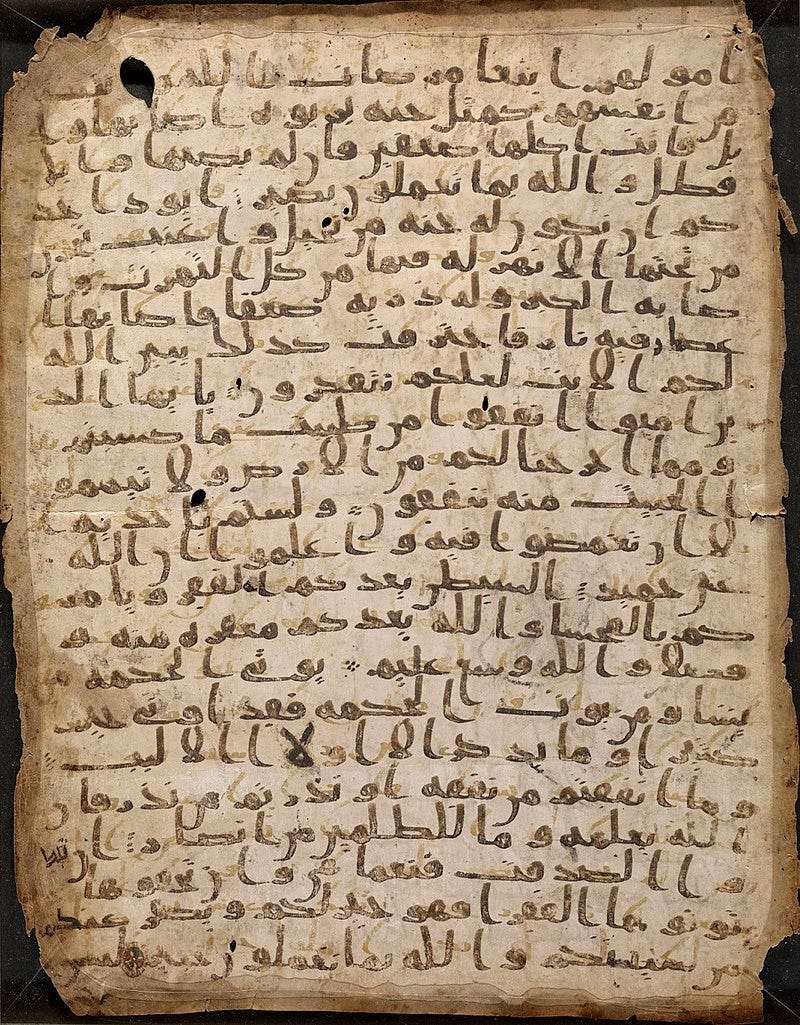
9. Dr. Shabir Ally on the version of the Qur’an on the heavenly tablets
What version of the Qur’an is the eternal uncreated version on the heavenly tablets? Dr. Shabir Ally answers
Dr. Ally adds elsewhere:
“What this means, in effect, the way I understand it, is that no matter what human beings do, that is already in that book. It's already in the foreknowledge of God, no matter what you can do. So, no matter how somebody recites the Quran, that's there in the heavenly tablet. If somebody recites it correctly or mistakenly, this way or that way, all of the ways are there in the heavenly book.
Let me use another analogy: a rope let down from God. The Quran has been compared to the Rope of God. If the rope is too fat, you cannot get a grip around it; you cannot hang on; you cannot be rescued. But if that rope is stranded out at the bottom so you can hold on to a manageable strand, then you can be rescued by holding on to that rope.
So, the Quran is more than just this one book that I'm holding up. It's several readings.
All of this has been approved in the Islamic tradition, and all of this is the Rope of God. All of this is the Quran. So, I'm holding on to one strand here and saying, "I'm holding on to this strand; I will be saved by holding on to this." I don't have to hold on to all of them altogether.”
In other words, for Shabir Ally, everyone with a Qur’an has the heavenly version of the Qur’an because Allah has decreed in heaven for even wrong recitations to exist in history. This is very different from claiming the 1924 Qur’an is perfectly preserving the tablets in heaven!
10. The Qur’an as an oral tradition - Dr. Shabir Ally
He adds elsewhere the Qur’an was initially an oral tradition.

This lines up more closely with Andy Bannister’s research we have highlighted elsewhere. Note Dr. Ally’s words:
“The oral tradition—it was an oral tradition—and then the Companions of the Prophet, peace be upon him, themselves may have allowed some latitude when they taught the Quran to others. If someone couldn't pronounce the words exactly, they allowed them to pronounce a variety, so long as the main meaning was captured and the message was not distorted.”
11. Islamic scholar Dr. Shady Nasser on the “ignorant masses”-The Qur’an was revealed in seven modes according to the Hadith but Muslim scholars unanimously agree we do not have these seven modes of recitation as seven canonical modes today!
Narrated `Abdullah bin `Abbas:
Allah's Messenger said, "Gabriel recited the Qur'an to me in one way. Then I requested him (to read it in another way), and continued asking him to recite it in other ways, and he recited it in several ways till he ultimately recited it in seven different ways."
Ibn 'Abbas reported Allah's Messenger as saying:
Gabriel taught me to recite in one style. I replied to him and kept asking him to give more (styles), till he reached seven modes (of recitation). Ibn Shibab said: It has reached me that these seven styles are essentially one, not differing about what is permitted and what is forbidden.
Scholar, Dr. Shady Nasser, in The Transmission of The Variant Readings of The Quran, explains how what we have today is definitely not the seven modes revealed to Muhammad. In fact, no one really knows what these modes were.
Dr. Nasser explains on p.28:
The only legitimacy for the existence of variant readings of the Qur'an is the Prophetic tradition(s) which speak of the sab'ah āḥruf (seven modes).
There exists a huge uncertainty regarding the term sab'ah āḥruf (seven modes), an uncertainty that sometimes amounts to mystery. Until now, no reasonable explanation has been offered for the exact meaning of the sab'ah āḥruf. al-Suyūṭī enumerates thirty-five different interpretations of the sab'ah āḥruf tradition, ranging from linguistic to esoteric interpretations.
Muslim scholars, however, unanimously agree that the sab'ah āḥruf (seven modes) are not al-Qirā'āt al-Sab'ah (the seven canonical readings), which were collected and canonized by Ibn Mujāhid (d. 324/936). According to them, only the ignorant masses took the sab'ah āḥruf (seven modes) of the Prophetic tradition to be the seven canonical readings.
This issue will be discussed in more detail in the second chapter of this book.
Since the notion of the sab'ah āḥruf (seven modes) was and still is vague, an accurate translation of the term is almost impossible, since we actually do not know what is meant by ḥarf (mode).
12. What about the Bible?
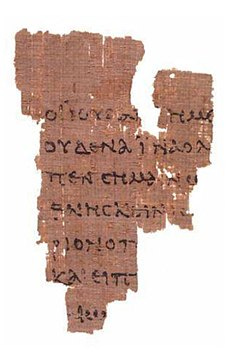
We now come to the Bible.
Christians do not claim only one version of the Bible exists but rather the meaning of the Bible throughout the individual chapters and verses of the Bible has been accurately preserved with a high degree of confidence through history (similar to what Dr. Ally argues for the Qur’an).
13. Was centralised corruption of the Bible possible?
With the Bible, there was no central control of the manuscript evidence. While with the Qur’an Caliph Uthman burned off and suppressed alternate readings, the Bible spread like wildfire throughout the Roman Empire making centralised corruption impossible!
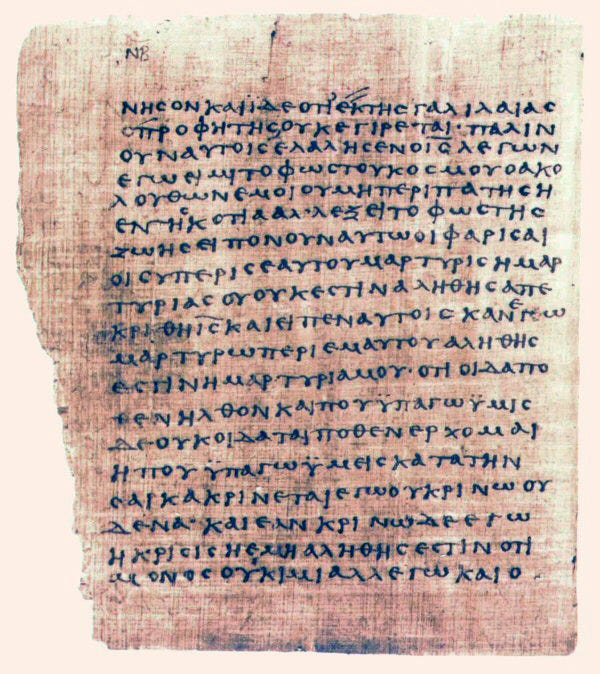
14. Did Muhammad think the Bible has been corrupted?
Given the Qur’an’s frequent call to follow the Gospel and the Torah it would definitely not appear Muhammad or Allah thought the Bible is corrupted. In fact, if they did think it was corrupted and said people should follow it, this casts serious doubts on their character.
We have strong manuscript evidence from the time of Muhammad demonstrating that the Bible we have today is consistent in its message with the Bible from the time of Muhammad.
Note the below from the Qur’an:
Surah 3:3: He has sent down upon you, [O Muḥammad], the Book in truth, confirming what was before it. And He revealed the Torah and the Gospel.
Surah 3:48: And He (Allah) will teach him (Jesus) writing and wisdom and the Torah and the Gospel.
Surah 3:65: O People of the Scripture, why do you argue about Abraham while the Torah and the Gospel were not revealed until after him? Then will you not reason?
Surah 5:46: And We sent, following in their footsteps, Jesus, the son of Mary, confirming that which came before him in the Torah; and We gave him the Gospel, in which was guidance and light and confirming that which preceded it of the Torah as guidance and instruction for the righteous.
Judge by what is in the Gospel Qur’an says
Surah 5:47: And let the People of the Gospel judge by what Allāh has revealed therein. And whoever does not judge by what Allāh has revealed — then it is those who are the defiantly disobedient.
Surah 5:66: And if only they had upheld [the law of] the Torah, the Gospel, and what has been revealed to them from their Lord [i.e., the Qur’ān], they would have consumed [provision] from above them and from beneath their feet. Among them are a moderate [i.e., acceptable] community, but many of them — evil is that which they do.
Surah 5:68: Say, “O People of the Scripture, you are [standing] on nothing until you uphold [the law of] the Torah, the Gospel, and what has been revealed to you from your Lord [i.e., the Qur’ān].” And that which has been revealed to you from your Lord will surely increase many of them in transgression and disbelief. So do not grieve over the disbelieving people.
Surah 5:110: [The Day] when Allāh will say, “O Jesus, Son of Mary, remember My favor upon you and upon your mother when I supported you with the Pure Spirit [i.e., the angel Gabriel] and you spoke to the people in the cradle and in maturity; and [remember] when I taught you writing and wisdom and the Torah and the Gospel; and when you designed from clay [what was] like the form of a bird with My permission, then you breathed into it, and it became a bird with My permission; and you healed the blind [from birth] and the leper with My permission; and when you brought forth the dead with My permission; and when I restrained the Children of Israel from [killing] you when you came to them with clear proofs and those who disbelieved among them said, “This is not but obvious magic.”
Surah 7:157: Those who follow the Messenger, the unlettered prophet, whom they find written [i.e., described] in what they have of the Torah and the Gospel, who enjoins upon them what is right and prohibits them from what is wrong and makes lawful for them what is good and forbids them from what is evil and relieves them of their burden and the shackles which were upon them.2 So they who have believed in him, honored him, supported him and followed the light which was sent down with him — it is those who will be the successful.
Surah 9:111: Indeed, Allāh has purchased from the believers their lives and their properties [in exchange] for that they will have Paradise. They fight in the cause of Allāh, so they kill and are killed. [It is] a true promise [binding] upon Him in the Torah and the Gospel and the Qur’ān. And who is truer to his covenant than Allāh? So rejoice in your transaction which you have contracted. And it is that which is the great attainment.
The Gospel helps believers grow strong Qur’an says
Surah 48:29: Muḥammad is the Messenger of Allāh; and those with him are forceful against the disbelievers, merciful among themselves. You see them bowing and prostrating [in prayer], seeking bounty from Allāh and [His] pleasure. Their sign is in their faces from the effect of prostration [i.e., prayer]. That is their description in the Torah. And their description in the Gospel is as a plant which produces its offshoots and strengthens them so they grow firm and stand upon their stalks, delighting the sowers — so that He [i.e., Allāh] may enrage by them the disbelievers. Allāh has promised those who believe and do righteous deeds among them forgiveness and a great reward.
Surah 57:27: Then We sent following their footsteps [i.e., traditions] Our messengers and followed [them] with Jesus, the son of Mary, and gave him the Gospel. And We placed in the hearts of those who followed him compassion and mercy and monasticism, which they innovated; We did not prescribe it for them except [that they did so] seeking the approval of Allāh. But they did not observe it with due observance. So We gave the ones who believed among them their reward, but many of them are defiantly disobedient.
15. Leading Sceptic Bart Ehrman: The Bible's Core Message Remains Intact
Leading sceptic of Christianity who writes about the corruption of the Bible does not think the Bible has been thoroughly corrupted beyond its original core meaning
Note the below from Dr. Bart Ehrman:
Essential Christian teachings have not changed- the NT manuscripts preserve these teachings
Bart Ehrman claims in an interview found in the appendix of Misquoting Jesus (p. 252), “Bruce Metzger is one of the great scholars of modern times, and I dedicated the book to him because he was both my inspiration for going into textual criticism and the person who trained me in the field. I have nothing but respect and admiration for him. And even though we may disagree on important religious questions — he is a firmly committed Christian and I am not — we are in complete agreement on a number of very important historical and textual questions. If he and I were put in a room and asked to hammer out a consensus statement on what we think the original text of the New Testament probably looked like, there would be very few points of disagreement — maybe one or two dozen places out of many thousands. The position I argue for in ‘Misquoting Jesus’ does not actually stand at odds with Prof. Metzger’s position that the essential Christian beliefs are not affected by textual variants in the manuscript tradition of the New Testament.”
16. Muslim apologists commit an equivocation fallacy- does Dr. Bruce Metzger think the Bible has been thoroughly corrupted beyond its’ original meaning?
Muslim apologists like Ali Dawah and Mohammed Hijab love to refer to Bruce Metzger’s statements as evidence the Bible has been corrupted. However, as noted in Ehrman’s quote, Metzger who trained Ehrman, does not think essential Christian beliefs are affected by textual variants in the manuscript tradition of the New Testament! Dawah and Hijab are simply equivocating on Metzger’s use of the word corruption, making it to mean something Metzger did not intend.
Dawah and Hijab are simply equivocating on Metzger’s use of the word corruption. Metzger does not mean the meaning has been lost or is completely indiscernible! The heading of Metzger’s book, The Text of the New Testament: Its Transmission, Corruption, and Restoration, suggests the New Testament can accurately restored!
Metzger is referring to corruption (often very very minor) in various manuscripts that leads to variants.
These variants are discernible due to the wealth of manuscript evidence we have to compare to. Metzger is not saying the Bible is hopelessly corrupted! The very small handful of highly disputed verses are known to scholars and your Bible has a footnote next to these. This is not a case of secret corruption destroying the entire text! Nor a case of most of Bible today being an unreliable indicator of the original text!
In fact, Metzger goes to far as to say we could virtually reconstruct the entire New Testament based on church father quotes alone without even going into the extensive manuscript evidence!
“Besides textual evidence derived from New Testament Greek manuscripts and from early versions, the textual critic has available the numerous scriptural quotations included in the commentaries, sermons, and other treatises written by early Church fathers. Indeed, so extensive are these citations that if all other sources for our knowledge of the text of the New Testament were destroyed, they would be sufficient alone for the reconstruction of practically the entire New Testament."
— Bruce Metzger, The Text of the New Testament: Its Transmission, Corruption, and Restoration (4th edition, p. 258)
17. Dr. Dan Wallace: The Bible’s Textual Accuracy
As per Dr. Dan Wallace, of the hundreds of thousands of variants (around 500,000 he estimates) in New Testament manuscripts around 0.2% (far less than 1%) impact the meaning of the text and are from early manuscripts. Other estimates suggest, 75% are spelling or similar differences, 15% are variations of Greek synonyms and transpositions, over 9% are late changes easily detectable.
According to Wallace, we have so many variants because we have so many manuscripts. An embarrassingly large amount of manuscripts! Wallace also refers to over 1 million citations of the New Testament in the early church fathers. Wallace claims comparing the manuscript evidence of the New Testament to the average work in antiquity is like placing 4.5 Empire State Buildings next to a 4-foot pulpit.
You can listen to a lecture from Wallace on the topic below:
The Dead Sea Scroll findings at Qumran in 1947- 1956 including approximately 230 biblical manuscripts attest to the preservation of the Old Testament.
We also have thousands upon thousands of manuscripts in other languages.
Again this makes centralised corruption near impossible!
18. Copies of copies of copies of copies?
Another attack commonly made against the Bible is that we have copies of copies of copies etc etc. The fact is many manuscripts were copied with either the originals in existence or other early copies in existence. You don’t copy something precious then burn the original. Tertullian, for example, referred to the place where authentic writings of the apostles were read, indicating some originals were still in existence in 200 AD. Moreover, we can reconstruct the originals using textual criticism and early church father quotes.
19. Conclusion
In today’s article we have seen:
Muslims face challenges in explaining the uncreated eternal nature of the Qur’an and Allah’s 99 eternal attributes which are connected to him but not identical to him nor identical to each other
Despite a popular catch cry of Muslims the Qu’ran has not been preserved word-for-word, letter-for-letter, dot-for-dot. Some Muslims scholars admit that is a lie parroted by the ignorant masses.
Muslims scholars unanimously reject the notion that the 7 recitations of the Qur’an delivered to Muhammad mirror the canonical versions of today
There are multiple Arabic versions of the Qur’an and the most commonly used version today the Egyptian Standard Version that traces back to 1924.
Muhammad taught people to follow the Gospel and the Torah. The Gospel teaches Jesus thought He is divine (Matt. 21:16; Ps. 8:2) and that He came to give His life as a ransom for many (Matt. 20:28).
The manuscript evidence is clear that the Gospels at the time of Muhammad contain the same message as the Bible we have today. We have manuscripts from well before the time of Muhammad
The meaning of the Bible has been preserved and the Bible is the best attested work of ancient history in terms of manuscript evidence.
20. What the Bible’s message is about
If you take the Bible’s message seriously, consider turning to Jesus. Charged with blasphemy for thinking He is divine (Mark 14:60-65). Offering His life up to connect you with Himself for eternity (Matt. 20:28, John 3:16). Rising from the grave to defeat the powers of death and darkness (1 Cor. 15:3-8). You cannot work your own way remotely close to a Holy God.
In whom will you trust on the Day of Judgement, your own works or the work of Jesus?
We have more on this below:

